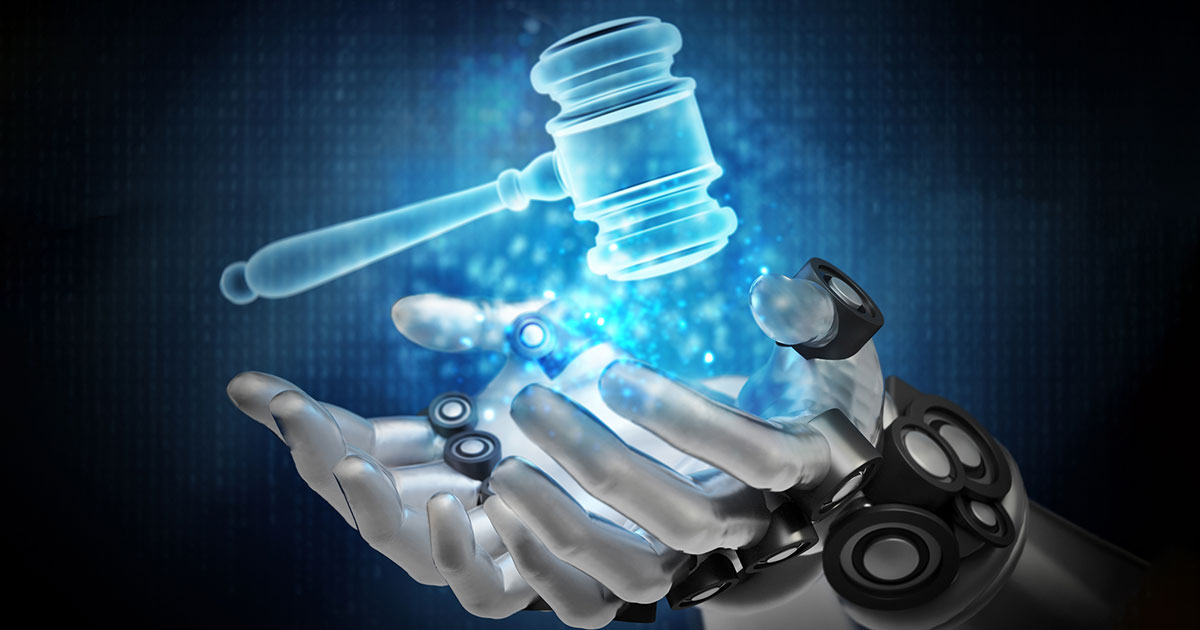
June 19, 2024 – Artificial intelligence (AI) is developing at warp speed. In the 19 months since ChatGPT launched, AI has moved from responding to novelty prompts (“Write a haiku about a cat”) to
helping make government decisions on public benefits.
AI’s rapid advance has big implications for the legal system. State bar associations are beginning to take notice.
In April, the New York State Bar Association’s Task Force on Artificial Intelligence issued an
85-page report.
In the report, the task force wrote that AI has the potential to broaden access to justice by allowing low-income individuals to obtain certain forms of legal information and guidance without having to hire an attorney.
The task force made the following recommendations:
adopt AI guidelines and appoint a committee to recommend updates to the guidelines;
educate judges, lawyers, law students, and regulators to understand AI;
legislators and regulators should identify risks posed by AI that aren’t covered by existing law.
AI for Legal Research

“Don’t expect AI to be this more-than-human thing that’s going to be able to do everything you can do without any weaknesses.” – Brent Hoeft, Practice Management Advisor at the State Bar of Wisconsin
The New York State Bar is not alone. Brent Hoeft, Practice Management Advisor at the State Bar of Wisconsin, said several other state bar associations have issued guidelines and ethics opinions on AI.1
Given the uncertainty about AI, how should attorneys use it in their practice?
“Legal research is going to be the area that’s safest to operate in,” Hoeft said.
It’s an area where AI is consistently proving its mettle, Hoeft said.
The incorporation of retrieval-augmented generation (RAG) technology into large-language models (LLM) used by legal research companies greatly reduces the risk of “hallucinations” – fictitious case names and citations – that marred early efforts using non-law-specific generative AI tools for legal research and led to
cringeworthy headlines.
According to Hoeft, RAG technology “closes the universe” of data that an LLM is searching.
“The objective is not just to provide information, but to be accurate and correct and real within the specific universe,” Hoeft said.
‘It Levels the Playing Field’
Hoeft said that using RAG-equipped AI to do legal research and sort or summarize large amounts of data allows solo practitioners and small firms to punch above their weight.
“It levels the playing field for solo practitioners and small firms,” Hoeft said. “The amount of time it would take to not only research all that and then put it together in a memo or brief … It might take a team of associates a week to comb over all that and then write a memo for a partner.”
“Solos and small firms don’t have that kind of human power, so to be able to take those tasks and perform them in minutes and have that information for when the in-depth legal work starts is significant.”
Hoeft said AI can be invaluable in anticipating an opponent’s line of attack. You can ask an AI service for the top 10 arguments in, say, an adverse possession case.
“There might be one that you hadn’t thought about,” Hoeft said. “Maybe that’s a better final argument to include than the one you originally had.”
“So, you’ve made your legal work better, but you didn’t have to devote a lot of time and you won’t be second-guessing yourself. You’ve become a better lawyer in less time, and you didn’t have to charge your client as much.”
AI For Practice Management
AI can help with practice management tasks too, or, as Hoeft refers to them, “all those different tasks that support the actual practice of law.”
As an example, he cited a blog post on probate law to attract clients.
“The probate process is complicated, it might be hard to get it down to one page,” Hoeft said. “You can put it into ChatGPT and say, ‘Can you condense and make this more concise?’”
Continue to Use With Caution
However,
AI has limits and attorneys must continue to use caution when using it. AI is only a tool, Hoeft said – no different (for now) than a can opener or a camera.
 Jeff M. Brown, Willamette Univ. School of Law 1997, is a legal writer for the State Bar of Wisconsin, Madison. He can be reached by email or by phone at (608) 250-6126.
Jeff M. Brown, Willamette Univ. School of Law 1997, is a legal writer for the State Bar of Wisconsin, Madison. He can be reached by email or by phone at (608) 250-6126.
“The hallucinations aren’t a flaw of generative AI, it’s just the way the tool is,” Hoeft said. “Not every tool can do everything. You have to understand the tool you’re using.”
That includes knowing the benefits and the risks of using AI – an ethical obligation that applies to any technology attorneys use in their practices.
“Don’t expect it to be this more-than-human thing that’s going to be able to do everything you can do without any weaknesses,” Hoeft said.
Hoeft predicted that attorneys will continue to have to adapt as AI evolves.
“The scary thing is, this is as bad as it’s going to be,” Hoeft said. “It’s going to get better, crazy-fast. We’re still only a year-and-a-half out from when ChatGPT came out.”
If Hoeft’s prediction worries you, the New York State Bar task force recommends you buckle up and maybe pack some Dramamine. The task force concluded its report with the following sentence:
“We liken this journey to the mindset of ancient explorers: be cautious, be curious, be vigilant, and be brave.”
Endnotes
1 California Bar Guidance on Generative AI,
https://www.calbar.ca.gov/Portals/0/documents/ethics/Generative-AI-Practical-Guidance.pdf; Florida Bar Opinion on Generative AI
Opinion 24-1 – The Florida Bar; New Jersey Courts Guidelines
Notice Legal Practice: Preliminary Guidelines on the Use of Artificial Intelligence by New Jersey Lawyers (njcourts.gov); State Bar of Michigan Ethics Opinion JI-155 (2023) Judicial Officers
Ethics Opinions Search Detail (michbar.org); Pennsylvania Bar Association and Philadelphia Bar Association Joint Opinion
FORMAL OPINION 2024-200 ETHICAL ISSUES REGARDING THE USE OF ARTIFICIAL INTELLIGENCE.
